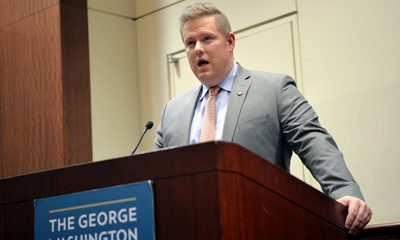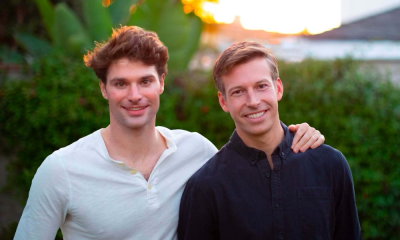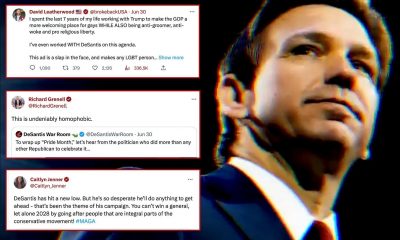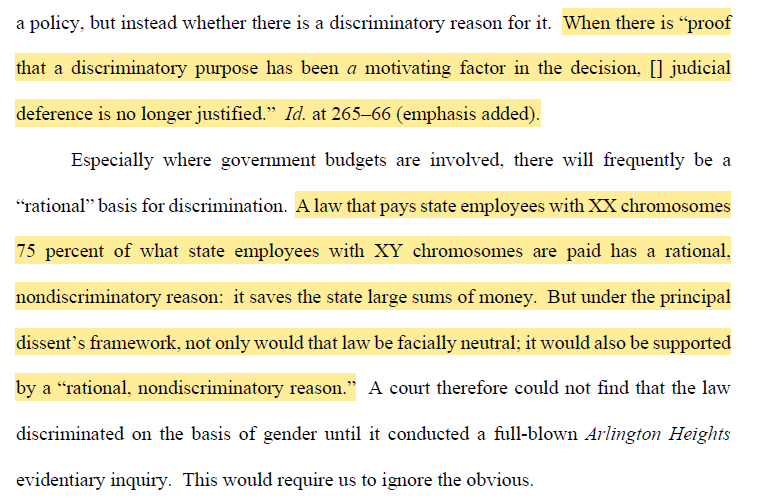National
GOP at a crossroads as conservatives meet
Some optimistic party will evolve, embrace marriage equality
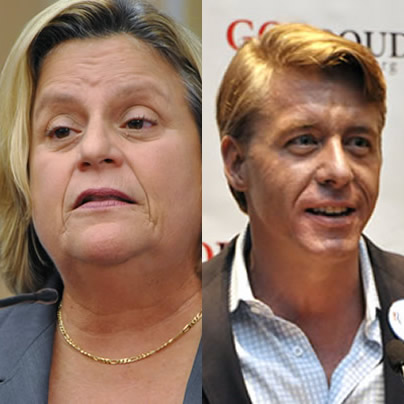
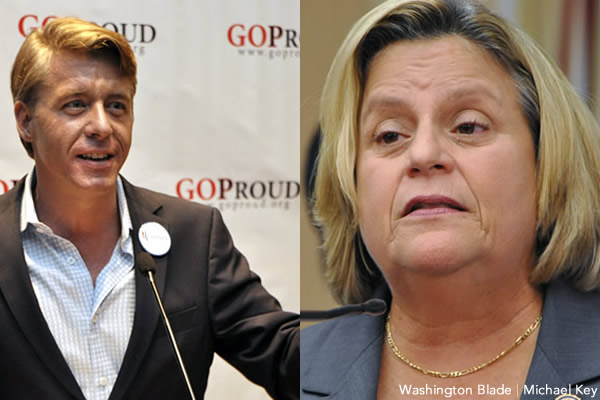
Jimmy LaSalvia and Rep. Ileana Ros-Lehtinen (R-Fla.) are urging the GOP to undertake greater outreach to the LGBT community. (Washington Blade photos by Michael Key)
As conservatives from across the country prepare to descend on D.C. for the annual Conservative Political Action Conference, some Republicans are urging the party to reach out and welcome the LGBT community.
Rep. Ileana Ros-Lehtinen (R-Fla.) — perhaps the most pro-LGBT Republican U.S. House member and co-sponsor of legislation to repeal the Defense of Marriage Act — said in a statement to the Washington Blade that she hopes the Republican Party will reach out to the LGBT community.
“I am optimistic that the GOP will see the value of being more inclusive,” Ros-Lehtinen said. “More of my House colleagues need to come to the realization that establishing positive working relationships with the LGBT community in their districts is the right thing to do.”
It would be quite a turnaround for the Republican Party. The party lost the presidential election and seats in both chambers of Congress in 2012 after the standard-bearer in the election, Mitt Romney, campaigned on a federal constitutional amendment banning same-sex marriage and said he opposed not only marriage equality, but civil unions.
Gay GOP groups have worked to spread the message that victory for the Republican Party means taking a more inclusive, “big-tent” approach.
Gregory Angelo, executive director of the Log Cabin Republicans, said if the GOP doesn’t evolve to engage more with the LGBT community, the party will “hit a wall” and be unable to secure the support of not only gay conservatives, but young voters.
“What we’re looking at is a matter of addition-multiplication that can benefit the movement as opposed to subtraction-division, which will harm it, and ensure that we continue to lose elections,” Angelo said.
Jimmy LaSalvia, executive director of GOProud, said the Republican Party needs to address gay issues because so many Americans know gay people and don’t want to cast votes for a party that opposes their interests.
“The gay issue is something that cuts across all demographic groups because politics is personal and everybody has a gay person in their lives, and so they think about how issues affect gay people,” LaSalvia said.
In last 13 years, LaSalvia counted two instances in which the leader of the Republican Party sought input from LGBT people: then-Republican presidential nominee George W. Bush’s meeting with the “Austin 12” in 2000 and then-GOP nominee John McCain’s interview with the Washington Blade in 2008. In October, Log Cabin also met with Romney at a Virginia farmhouse just before Election Day to discuss LGBT issues, such as the Employment Non-Discrimination Act.
The Republican National Committee is set on Monday to make public an internal review of Election 2012 and make recommendations going forward. It’s unknown whether the report will address the party’s relationship with the LGBT community.
Sean Spicer, a Republican National Committee spokesperson, expressed a sentiment similar to Log Cabin’s on the importance of inclusion, but took note of the party’s 2012 platform, which endorses a federal constitutional amendment banning same-sex marriage.
“While the issues of our party are clear in our platform, Chairman Priebus recognizes that in order to grow our party we need to be a party of addition and multiplication rather than subtraction and division,” Spicer said.
On its face, CPAC represents the image of the Republican Party that has yet to embrace LGBT people. This year, an estimated 10,000 people are expected to attend the convention, which will take place from Thursday to Saturday at the Gaylord National Resort & Convention Center in National Harbor, Md.
Speakers at the event include rising Republican stars such as Sen. Marco Rubio (R-Fla.), who’s expressed opposition to same-sex marriage and voted against LGBT-inclusive reauthorization of the Violence Against Women Act as well as former Republican presidential candidates Rick Santorum and Mitt Romney, who campaigned last year in favor of a constitutional amendment banning same-sex marriage throughout the country.
Others include Sen. Rand Paul (R-Ky.), who gained notoriety recently for his 13-hour filibuster in the Senate over Obama’s use of drones and authority to use them in the United States, as well as former Florida Gov. Jeb Bush and former Republican vice presidential candidate Sarah Palin.
Neither GOProud, which was banned from the event in 2011, nor Log Cabin will be co-sponsors of the event, although social conservative groups, such as The Heritage Foundation and Focus on the Family’s CitizenLink will be in attendance.
Both groups told the Blade they didn’t actively seek to participate as sponsors during the event, but they also weren’t invited to attend. Angelo said Log Cabin was invited to participate in other CPAC-related events throughout the week, but opted not to attend.
Gregg Keller, executive director of the American Conservative Union, said in a statement to the Blade that GOProud — along with John Birch Society, an advocacy group supporting limited government — were barred in 2011 for reasons other than gay identity.
“The ACU Board voted in 2011 to not invite two groups to sponsor CPAC because of past disrespectful behavior toward conservatives and event attendees and that policy remains in place,” Keller said. “Although these organizations are not able to participate as sponsors, their members and supporters are welcome to purchase tickets and attend.”
LaSalvia responded by saying ACU’s stated reason for GOProud’s exclusion from CPAC is untrue.
“For two and half years we were under attack from anti-gay forces on the ACU board to keep us out of CPAC because we are gay,” LaSalvia said. “One of our board members called one of those anti-gay ACU board members a ‘bigot.’ He apologized, and they have used that incident as their reason to exclude us when the truth is they kicked us out because we are gay.”
Still, an unofficial event will be held on Thursday in the same building as CPAC that will highlight gay conservatives and tolerance, titled, “A Rainbow on the Right: Growing the Coalition, Bringing Tolerance Out of the Closet.” It’s hosted by the Competitive Enterprise Institute and will begin at 6 pm.
Speakers on the panel include LaSalvia as well as CEI Chair Fred Smith; Jonah Goldberg, editor-at-large for The National Review; CNN contributor and noted supporter of marriage equality Margaret Hoover; and the Washington Post’s conservative blogger Jennifer Rubin.
Despite the prominent anti-gay speakers at the event, CPAC is hosting no official panel with a specific anti-gay bent, or even one against same-sex marriage.
LaSalvia said he thinks social conservatives “are an important part of the coalition” that make up the Republican Party, but he doesn’t know what the future holds for conservatives who demonize gay people.
“And I’m not talking about people who oppose gay marriage; I’m talking about the ‘anti-gay-for-pay’ crowd,” LaSalvia said. “Because most Americans have gay people in their lives, they know that gays aren’t destroying America, they know that gays aren’t destroying civilization because gay people are in their families, and so they know better.”
Perhaps the most striking signal that the GOP is reconsidering its position on LGBT issues is a legal brief signed by 131 prominent Republicans calling on the Supreme Court to overturn California’s Proposition 8.
Signers of the brief, which was circulated by gay former RNC Chair Ken Mehlman, included Ros-Lehtinen as well as her House colleague Richard Hanna (R-N.Y.). The brief also included many individuals who worked on the Romney campaign — including David Kochel, Romney campaign’s Iowa strategist, who’s said support for marriage equality is “emerging as a mainstream issue” in the GOP — as well as Republican gubernatorial candidate Meg Whitman, who campaigned in support of Prop 8.
Angelo said the brief “really crystalized” a greater acceptance of gay individuals in the conservative movement that he said “has been happening for years.”
“There have been people who have been elected officials at the grassroots level — and people who have been prominent staffers — who have been personally supportive of gay individuals in the past,” Angelo said. “What’s happening now is they’re becoming more outspoken in that support, and there is a true debate that’s happening within the conservative movement on this issue, specifically of marriage equality.”
Additionally, the 2012 election — in which three states legalized same-sex marriage and another rejected a constitutional amendment banning it — has shaken up presidential candidates’ views on same-sex marriage.
Former Utah Gov. Jon Huntsman, a Mormon, expressed support for same-sex marriage in an op-ed for the American Conservative, while former U.S. House Speaker Newt Gingrich reportedly told The Huffington Post the Republican Party must accept the reality of same-sex marriage.
In a recent Fox News interview, Romney said he continues to believe marriage is for one man, one woman, but he’ll “respect” other views on the issue.
These new views have led observers to believe that positions on marriage could divide Republican candidates when the compete in primaries for the nomination to run for the White House in 2016.
Angelo said 2016 is a “long way away” and thinks how the marriage issue will play out among the Republican candidates will become more apparent depending on the Supreme Court’s upcoming rulings on Prop 8 and DOMA.
“Will Republicans breathe a sigh of relief if DOMA is overturned and Proposition 8 is overturned because the issues are off the table, or is it going to be something that the Republican Party continues to pursue?” Angelo said. “Any presidential candidate that the party would put forth would have to deal with these issues as a political reality.”
Angelo said the debate within the Republican Party on LGBT rights is the result of an absence of negative consequences after the legalization of same-sex marriage in nine states and D.C.
“I know a lot of people would rather that there would be no debate at all and the movement go from completely opposing same-sex civil marriages to completely embracing it, but that’s not how these things happen,” Angelo said. “I’m definitely a realist in that regard, but things are definitely moving in the right direction.”
UPDATE: This article has been updated to include a comment from the Republican National Committee and a response from Jimmy LaSalvia on ACU’s stated reason for excluding GOProud from CPAC.
National
United Methodist Church removes 40-year ban on gay clergy
Delegates also voted for other LGBTQ-inclusive measures
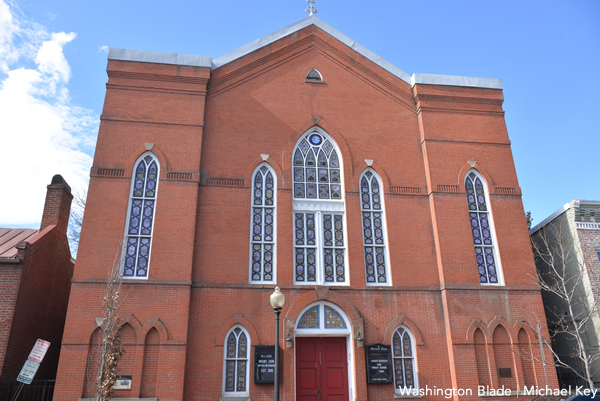
The United Methodist Church on Wednesday removed a ban on gay clergy that was in place for more than 40 years, voting to also allow LGBTQ weddings and end prohibitions on the use of United Methodist funds to “promote acceptance of homosexuality.”
Overturning the policy forbidding the church from ordaining “self-avowed practicing homosexuals” effectively formalized a practice that had caused an estimated quarter of U.S. congregations to leave the church.
The New York Times notes additional votes “affirming L.G.B.T.Q. inclusion in the church are expected before the meeting adjourns on Friday.” Wednesday’s measures were passed overwhelmingly and without debate. Delegates met in Charlotte, N.C.
According to the church’s General Council on Finance and Administration, there were 5,424,175 members in the U.S. in 2022 with an estimated global membership approaching 10 million.
The Times notes that other matters of business last week included a “regionalization” plan, which gave autonomy to different regions such that they can establish their own rules on matters including issues of sexuality — about which international factions are likelier to have more conservative views.
Federal Government
Republican state AGs challenge Biden administration’s revised Title IX policies
New rules protect LGBTQ students from discrimination

Four Republicans state attorneys general have sued the Biden-Harris administration over the U.S. Department of Education’s new Title IX policies that were finalized April 19 and carry anti-discrimination protections for LGBTQ students in public schools.
The lawsuit filed on Tuesday, which is led by the attorneys general of Kentucky and Tennessee, follows a pair of legal challenges from nine Republican states on Monday — all contesting the administration’s interpretation that sex-based discrimination under the statute also covers that which is based on the victim’s sexual orientation or gender identity.
The administration also rolled back Trump-era rules governing how schools must respond to allegations of sexual harassment and sexual assault, which were widely perceived as biased in favor of the interests of those who are accused.
“The U.S. Department of Education has no authority to let boys into girls’ locker rooms,” Tennessee Attorney General Jonathan Skrmetti said in a statement. “In the decades since its adoption, Title IX has been universally understood to protect the privacy and safety of women in private spaces like locker rooms and bathrooms.”
“Florida is suing the Biden administration over its unlawful Title IX changes,” Florida Gov. Ron DeSantis wrote on social media. “Biden is abusing his constitutional authority to push an ideological agenda that harms women and girls and conflicts with the truth.”
After announcing the finalization of the department’s new rules, Education Secretary Miguel Cardona told reporters, “These regulations make it crystal clear that everyone can access schools that are safe, welcoming and that respect their rights.”
The new rule does not provide guidance on whether schools must allow transgender students to play on sports teams corresponding with their gender identity to comply with Title IX, a question that is addressed in a separate rule proposed by the agency in April.
LGBTQ and civil rights advocacy groups praised the changes. Lambda Legal issued a statement arguing the new rule “protects LGBTQ+ students from discrimination and other abuse,” adding that it “appropriately underscores that Title IX’s civil rights protections clearly cover LGBTQ+ students, as well as survivors and pregnant and parenting students across race and gender identity.”
Federal Government
4th Circuit rules gender identity is a protected characteristic
Ruling a response to N.C., W.Va. legal challenges
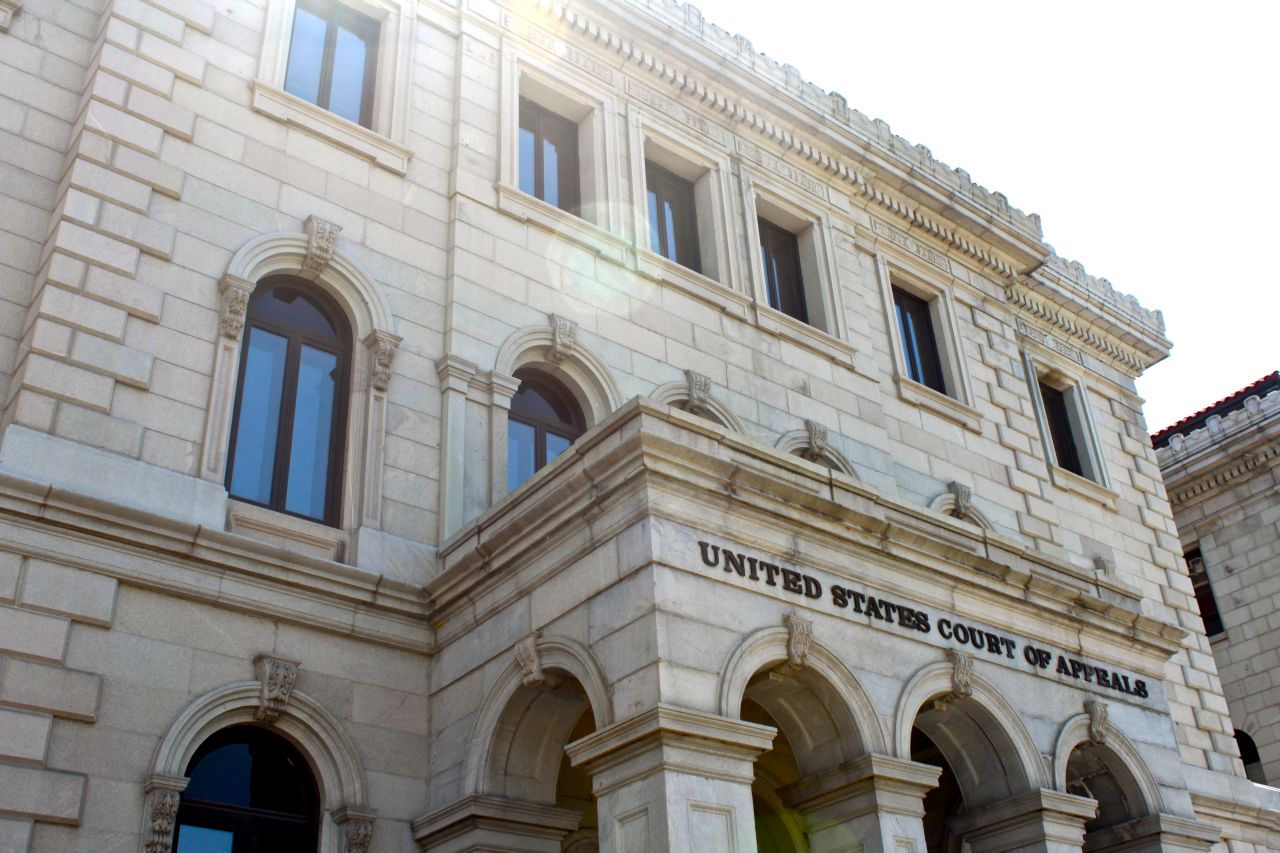
BY ERIN REED | The 4th U.S. Circuit Court of Appeals ruled Monday that transgender people are a protected class and that Medicaid bans on trans care are unconstitutional.
Furthermore, the court ruled that discriminating based on a diagnosis of gender dysphoria is discrimination based on gender identity and sex. The ruling is in response to lower court challenges against state laws and policies in North Carolina and West Virginia that prevent trans people on state plans or Medicaid from obtaining coverage for gender-affirming care; those lower courts found such exclusions unconstitutional.
In issuing the final ruling, the 4th Circuit declared that trans exclusions were “obviously discriminatory” and were “in violation of the equal protection clause” of the Constitution, upholding lower court rulings that barred the discriminatory exclusions.
The 4th Circuit ruling focused on two cases in states within its jurisdiction: North Carolina and West Virginia. In North Carolina, trans state employees who rely on the State Health Plan were unable to use it to obtain gender-affirming care for gender dysphoria diagnoses.
In West Virginia, a similar exclusion applied to those on the state’s Medicaid plan for surgeries related to a diagnosis of gender dysphoria. Both exclusions were overturned by lower courts, and both states appealed to the 4th Circuit.
Attorneys for the states had argued that the policies were not discriminatory because the exclusions for gender affirming care “apply to everyone, not just transgender people.” The majority of the court, however, struck down such a claim, pointing to several other cases where such arguments break down, such as same-sex marriage bans “applying to straight, gay, lesbian, and bisexual people equally,” even though straight people would be entirely unaffected by such bans.
Other cases cited included literacy tests, a tax on wearing kippot for Jewish people, and interracial marriage in Loving v. Virginia.
See this portion of the court analysis here:
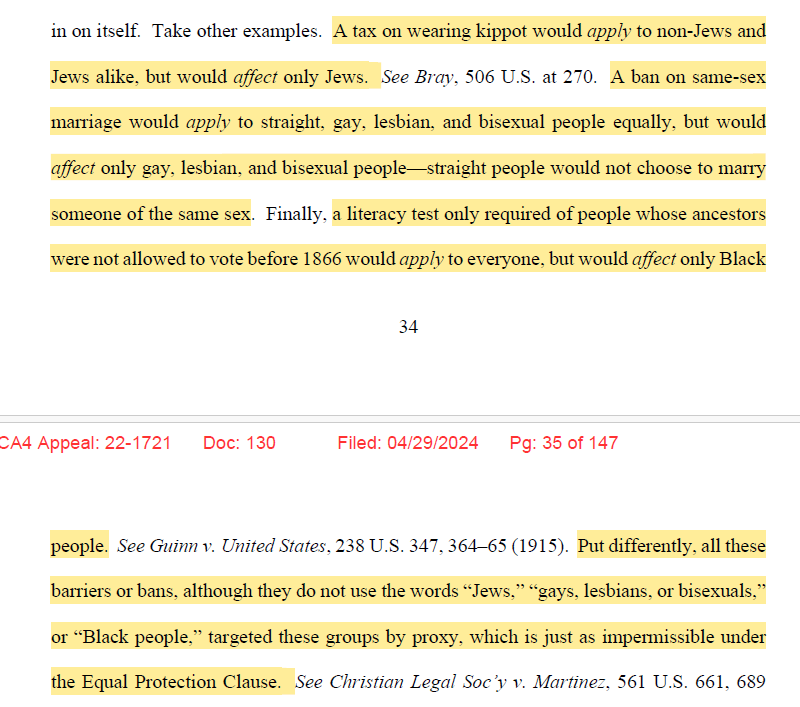
Of particular note in the majority opinion was a section on Geduldig v. Aiello that seemed laser-targeted toward an eventual U.S. Supreme Court decision on discriminatory policies targeting trans people. Geduldig v. Aiello, a 1974 ruling, determined that pregnancy discrimination is not inherently sex discrimination because it does not “classify on sex,” but rather, on pregnancy status.
Using similar arguments, the states claimed that gender affirming care exclusions did not classify or discriminate based on trans status or sex, but rather, on a diagnosis of gender dysphoria and treatments to alleviate that dysphoria.
The majority was unconvinced, ruling, “gender dysphoria is so intimately related to transgender status as to be virtually indistinguishable from it. The excluded treatments aim at addressing incongruity between sex assigned at birth and gender identity, the very heart of transgender status.” In doing so, the majority cited several cases, many from after Geduldig was decided.
Notably, Geduldig was cited in both the 6th and 11th Circuit decisions upholding gender affirming care bans in a handful of states.
The court also pointed to the potentially ridiculous conclusions that strict readings of what counts as proxy discrimination could lead to, such as if legislators attempted to use “XX chromosomes” and “XY chromosomes” to get around sex discrimination policies:
Importantly, the court also rebutted recent arguments that Bostock applies only to “limited Title VII claims involving employers who fired” LGBTQ employees, and not to Title IX, which the Affordable Care Act’s anti-discrimination mandate references. The majority stated that this is not the case, and that there is “nothing in Bostock to suggest the holding was that narrow.”
Ultimately, the court ruled that the exclusions on trans care violate the Equal Protection Clause of the Constitution. The court also ruled that the West Virginia Medicaid Program violates the Medicaid Act and the anti-discrimination provisions of the Affordable Care Act.
Additionally, the court upheld the dismissal of anti-trans expert testimony for lacking relevant expertise. West Virginia and North Carolina must end trans care exclusions in line with earlier district court decisions.
The decision will likely have nationwide impacts on court cases in other districts. The case had become a major battleground for trans rights, with dozens of states filing amicus briefs in favor or against the protection of the equal process rights of trans people. Twenty-one Republican states filed an amicus brief in favor of denying trans people anti-discrimination protections in healthcare, and 17 Democratic states joined an amicus brief in support of the healthcare rights of trans individuals.
Many Republican states are defending anti-trans laws that discriminate against trans people by banning or limiting gender-affirming care. These laws could come under threat if the legal rationale used in this decision is adopted by other circuits. In the 4th Circuit’s jurisdiction, West Virginia and North Carolina already have gender-affirming care bans for trans youth in place, and South Carolina may consider a similar bill this week.
The decision could potentially be used as precedent to challenge all of those laws in the near future and to deter South Carolina’s bill from passing into law.
The decision is the latest in a web of legal battles concerning trans people. Earlier this month, the 4th Circuit also reversed a sports ban in West Virginia, ruling that Title IX protects trans student athletes. However, the Supreme Court recently narrowed a victory for trans healthcare from the 9th U.S. Circuit Court of Appeals and allowed Idaho to continue enforcing its ban on gender-affirming care for everyone except the two plaintiffs in the case.
Importantly, that decision was not about the constitutionality of gender-affirming care, but the limits of temporary injunctions in the early stages of a constitutional challenge to discriminatory state laws. It is likely that the Supreme Court will ultimately hear cases on this topic in the near future.
Celebrating the victory, Lambda Legal Counsel and Health Care Strategist Omar Gonzalez-Pagan said in a posted statement, “The court’s decision sends a clear message that gender-affirming care is critical medical care for transgender people and that denying it is harmful and unlawful … We hope this decision makes it clear to policy makers across the country that health care decisions belong to patients, their families, and their doctors, not to politicians.”
****************************************************************************

Erin Reed is a transgender woman (she/her pronouns) and researcher who tracks anti-LGBTQ+ legislation around the world and helps people become better advocates for their queer family, friends, colleagues, and community. Reed also is a social media consultant and public speaker.
******************************************************************************************
The preceding article was first published at Erin In The Morning and is republished with permission.

